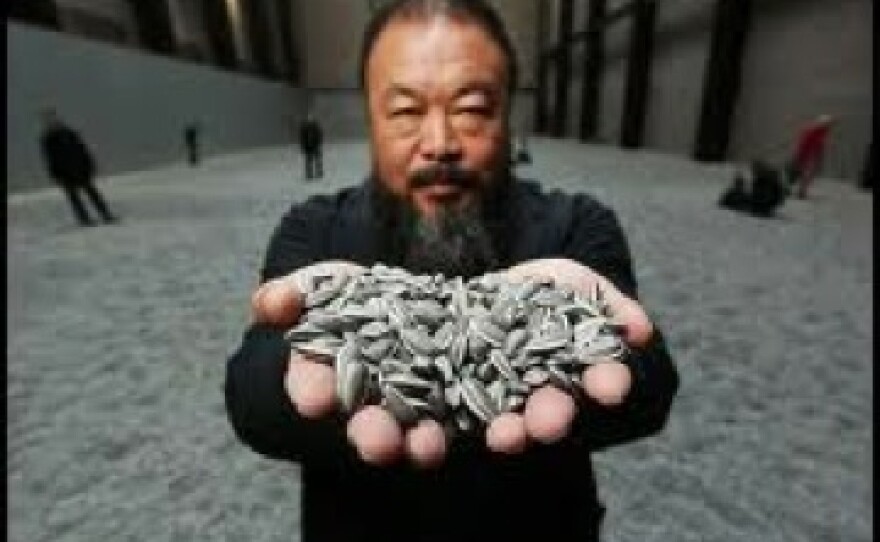There is probably no other artist alive who has made more headlines of late than Ai Weiwei, the Chinese multi-disciplinary rabble-rouser who is the subject of the riveting and timely documentary Ai Weiwei: Never Sorry.
You could say that first-time director Alison Klayman almost stumbled into the project, as she was working in China as a freelance journalist without any intent of making a documentary.
Yet she serendipitously ended up shooting the artist over a two year period when he was simultaneously thumbing his nose at Chinese government officials and making some of the best work of his career. His passion and her proximity combine to create a film of tenacious honesty
Ai Weiwei (pronounced eye way way)'s antagonism toward his country's policies of censorship and the artistic skill with which he expresses it have brought him more international fans than domestic enemies, though the latter are formidable. Over the course of the film, Klayman captures the extinguishing of his blog, the bulldozing of his new studio, and an assault at a police station that leaves him bloodied and bruised. And she's there at the beginning and the end of him being held in custody for over eighty days. But the beauty of the film is that it's not one long unmitigated rant.
And the artist at work is as interesting as his back story. Viewers are intimately made privy, for example, to his installation at the Tate Modern in London of over one million ceramic porcelain sunflower seeds laid out like a carpet and his role as artistic consultant to the "Birds Nest" stadium that became the centerpiece of the 2008 Beijing Olympics.
The most moving scenes in the film concern his piece Remembering, conceived to acknowledge the thousands of children killed in the 2008 Sichuan earthquake when their schools collapsed on top of them. Consisting of 9,000 child-sized backpacks, they were hung outside a museum in Munich and color-coded in such a way as to have the piece read "She lived happily for seven years in this world." It's a heart-breaking commentary about what the artist called "tofu-skin schools" that served as the kids' tombs and a work of art that demands that attention be paid to the fragility of family and happiness.
Filmmaker Alison Klayman will be a guest on Up to Date Friday, August 24, at 11:00 a.m.






